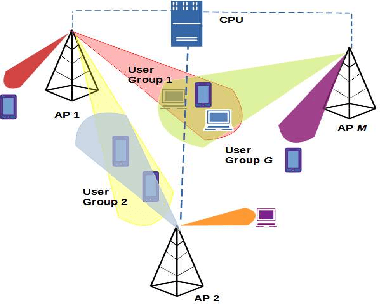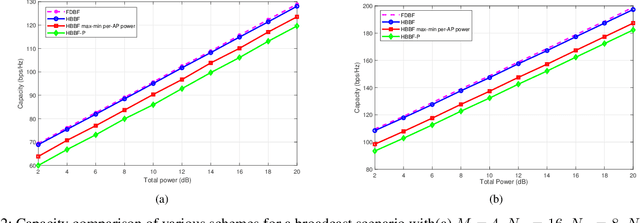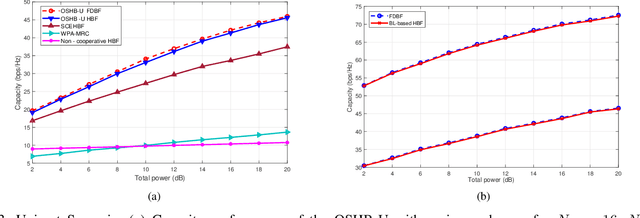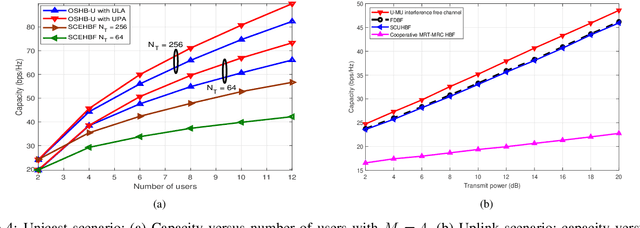Meesam Jafri
Asynchronous Distributed Coordinated Hybrid Precoding in Multi-cell mmWave Wireless Networks
Feb 13, 2024Abstract:Asynchronous distributed hybrid beamformers (ADBF) are conceived for minimizing the total transmit power subject to signal-to-interference-plus-noise ratio (SINR) constraints at the users. Our design requires only limited information exchange between the base stations (BSs) of the mmWave multi-cell coordinated (MCC) networks considered. To begin with, a semidefinite relaxation (SDR)-based fully-digital (FD) beamformer is designed for a centralized MCC system. Subsequently, a Bayesian learning (BL) technique is harnessed for decomposing the FD beamformer into its analog and baseband components and construct a hybrid transmit precoder (TPC). However, the centralized TPC design requires global channel state information (CSI), hence it results in a high signaling overhead. An alternating direction based method of multipliers (ADMM) technique is developed for a synchronous distributed beamformer (SDBF) design, which relies only on limited information exchange among the BSs, thus reducing the signaling overheads required by the centralized TPC design procedure. However, the SDBF design is challenging, since it requires the updates from the BSs to be strictly synchronized. As a remedy, an ADBF framework is developed that mitigates the inter-cell interference (ICI) and also control the asynchrony in the system. Furthermore, the above ADBF framework is also extended to the robust ADBF (R-ADBF) algorithm that incorporates the CSI uncertainty into the design procedure for minimizing the the worst-case transmit power. Our simulation results illustrate both the enhanced performance and the improved convergence properties of the ADMM-based ADBF and R-ADBF schemes.
Cooperative Hybrid Transmit Beamforming in Cell-free mmWave MIMO Networks
Dec 14, 2022



Abstract:Hybrid precoders and combiners are designed for cooperative cell-free multi-user millimeter wave (mmWave) multiple-input multiple-output (MIMO) cellular networks for low complexity interference mitigation. Initially, we derive an optimal hybrid transmit beamformer (HTBF) for a broadcast scenario considering both total and per access point (AP) power constraints. Next, an optimal successive hybrid beamformer technique is proposed for unicast and multicast scenarios which relies on the optimal minimum variance distortionless response (MVDR). We demonstrate that it mitigates both the interuser and intergroup interference, while successively ensuring orthogonality to the previously scheduled users/user groups. Furthermore, it is shown theoretically that the proposed schemes are capable of supporting a large number of users. Subsequently, a Bayesian learning (BL) based method is conceived for jointly designing the RF and baseband precoders/combiners for the various scenarios considered. Furthermore, we also conceive the uplink counterpart of our HTBF scheme, which is based on maximizing the signal-tointerference-plus noise ratio (SINR) of each individual user. Finally, the efficacy of the proposed schemes is characterized by our extensive simulation results in terms of cancelling the interuser/intergroup interference, which improves the spectral efficiency.
 Add to Chrome
Add to Chrome Add to Firefox
Add to Firefox Add to Edge
Add to Edge